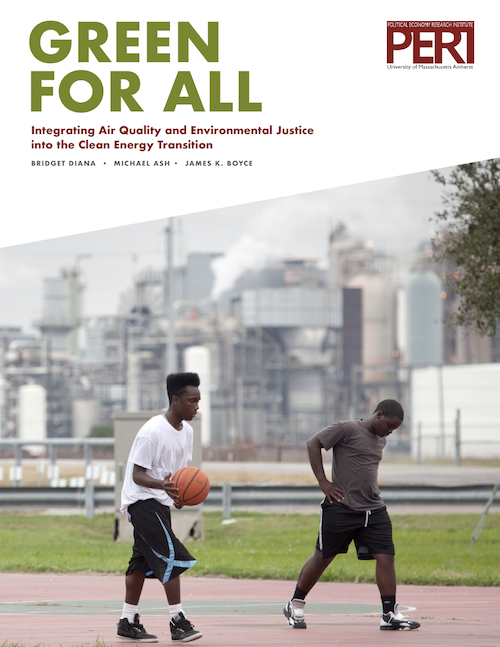
Decarbonization creates enormous opportunities to advance the vital goals of clean air and environmental justice while combating climate change. But these co-benefits are not automatic: to attain them, climate policy must be designed with these goals explicitly in mind. Clean air and environmental justice criteria could be included, for example, in the formulation of Clean Energy Standards (CES) to mandate that electricity companies not only increase the share of clean and renewable power but also meet standards for curbing hazardous air pollution and its disproportionate impacts on low-income communities and people of color.
This report analyzes alternative decarbonization pathways in the U.S. electric power sector, and finds that very substantial improvements in public health and environmental justice can be obtained at very low cost. However, decarbonization policies that focus narrowly on carbon reduction alone could not only forego potential health gains but also may worsen air quality in pollution hot spots in predominantly minority and low-income communities. Indeed, there is evidence that this has already happened in California.
The core tenets that co-benefits should be included in policy design, and that policy makers should aim to redress disproportionate harms borne by people of color and low-income communities, are already accepted in U.S. environmental policy. These same principles could be adopted by private-sector entities, including the hundreds of firms that have subscribed to Science-Based Targets for reducing their own carbon footprints.
This report demonstrates that it is eminently feasible to adhere to these principles in designing climate policy, and that it can be done at a reasonable cost. This will require moving beyond a narrow focus on carbon alone to embrace clean air and environmental justice as policy objectives alongside and complementary to decarbonization.



